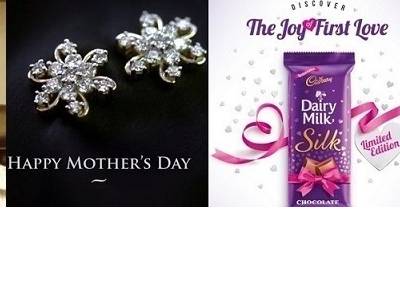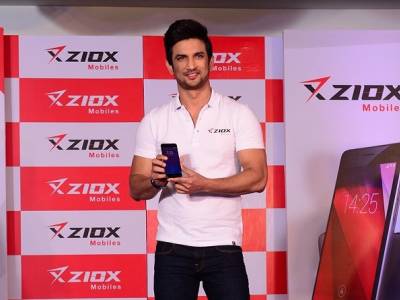Beyond deals – Winning the long term game in occasion-based marketing
With the festive season round the corner, brands are on a marketing overdrive. The traditional period of Onam-Dussehra/Durga Puja-Diwali-Christmas stretching right till Pongal/Lohri/Makar Sankranti has been the most active time of the year for brands as they seek to garner maximum sales and revenues. This period sees heightened advertising activities, numerous discounts and deals being doled out and a marketing frenzy amongst customers, as the period also sees the beginning of the wedding season in the country.
However, along with the traditional festive season, what can no longer be ignored is the growth of occasion-based marketing and advertising activities. Be it the patriotic fervor of Republic Day and Independence Day, or days dedicated to relationships – Raksha Bandhan, Valentine’s Day, Friendship Day, Mother’s Day, Father’s Day. Even Environment Day, Health Day, Earth Day, Yoga Day… the list is ever growing.
These occasions give brands added periods in which to engage the consumers with targeted campaigns. As has been seen umpteen times, people are more receptive to buying something related to a particular holiday/ occasion in the weeks leading up to the holiday or occasion than any other time of the year.
Over the years, product based marketing has been a continuous process – from creating awareness to brand recall. By invoking the brand and the memory associated with it at relevant times, marketers are able to create top-of-mind recall for the brand, thereby increasing the chance for it being bought or consumed.
The shift from product-based marketing to occasion-based marketing
There were times when organisations would do thematic campaigns and product based campaigns. However, that saw a logical end when budgets started to shrink and the two got clubbed together. Today, as the environment has changed and the need of the hour is more call to action the product advertising has become more occasion centric. Occasion-based marketing has been around for a while now. It is, however, gaining traction year on year, depending on adoption by diverse sets of brands. It may have all started with Valentine’s Day, which is still a rage today. The early adopters were the gifting categories and then came in restaurants and clubs, followed by traction from cosmetics, skin care, jewellery and other FMCG brands. Today, even categories like kitchen equipment and automobiles are using V-Day to their brands’ advantage. What started as a trickle has gained traction, and has become an occasion-based juggernaut on its own.
While stating that over the years product-based marketing has been a continuous process from creating awareness to brand recall, Prashant Peres, Director - Marketing (Chocolates), Mondelez India, pointed out that by invoking the brand and the memory associated with it at relevant times, marketers are able to bring the brand at top-of-mind, thereby increasing the chance for it being bought or consumed.
How does it change what brands are doing today?
Occasion-based marketing allows the consumer to see a brand beyond product and features and helps brands strengthen their need to communicate other things. Brands try to bring out their humane side, take a leadership stance, or possibly project oneself as a modern and progressive brand because they want to become a part of the popular culture. Anupama Ramaswamy, Executive Creative Director, Dentsu Impact, believes that occasion-based marketing helps the brand in deciding which occasions are most sensible and lucrative to try to capture.
Anita Nayyar, CEO - India & South Asia, Havas Media Group, states that the insights on occasion based marketing are fairly clear, wherein the brands are targeting sales and hence revenues. However, it is not necessary that the occasion-based strategy is making the brands more meaningful to consumers and hence, increasing the brand loyalty. “Segmenting your market by usage occasion is an often overlooked, but a potentially powerful source of insight about the market. It allows you to better engage with consumers by tailoring your message and media choices to each occasion,” she added.
According to Harish Bijoor, Brand-Guru &Founder of Harish Bijoor Consults Inc, occasion-based marketing gives brands one more day to focus upon as brands tend to want occasions that get eyeballs and occasions that get emotions going. Adding on to that, Krishnarao Buddha, Category Head at Parle Products considers occasion based marketing as an opportunity for marketers to encash upon during that short span of time as it helps in building brand imagery, product awareness and salience.
Meanwhile, on a different note, Vishal Nicholas, Senior Vice President – Head of Planning, Dentsu India, insisted that nothing really changes under the hood as we still need to understand the mindset of consumers during a particular occasion and look for an insight that drives them at that time.
Brands these days customise communication for newer occasions like Valentine’s Day, Friendship Day, Mother’s Day and so on as it expands their reach to a younger audience who constitute a larger proportion of the population. Brands invest a lot of time in understanding the market by segmenting it on the basis of demography and behavioural consumption patterns, which helps define clear marketing objectives and efficient allocation of resources. The choice of segmentation characteristics is very important, for incorrect segmentation can lead to wasted resources and missed profit opportunities. Prashant Peres affirmed that Mondelez India has identified and segmented the markets to benefit multiple consumers while also creating trends and culture with their strategy of going beyond just the Indian festivals and using social days like Valentine day or Friendship day to upshot the growing influence of youth culture in India.
Long term gain V/s short term sales push
Marketers well understand the power of consumption on an occasion. Unlike the West, till a few decades back, marketers in India depended heavily on festivals conventional and non-traditional. But that’s not the case today as the number of occasion-led marketing initiatives have increased manifold and most of the brands have started creating occasions. Anupama Ramaswamy thinks that brands need to monetise themselves at such occasions not only in terms of sale but also by connecting the audience with the brand and looking at it as a future investment.
Anita Nayyar considers it to be a combination of long term gain and short term sales push, depending on the objective of the brand at that particular time. On a different note, Harish Bijoor is of the opinion that brands are lately just toying with the idea of occasion based marketing and have not catapulted into the strategic use of the day. “Brands in India need to mature in their use of occasions,” he added.
Brands need to emote with consumers and pull the right chord with seriousness to find receptive buyers with occasion based marketing as it is not only to boost sales, but about giving customers an experience of consuming and connecting with the particular brand on a specific occasion. To connect with receptive buyers, it is significant for brands to create an emotional connect that builds higher brand recall and retention value. Krishnarao Buddha realises that a brand needs to access the needs of consumer and if the brand is unable to access the need, then generate an offering which will have a greater appeal to the consumer. Prashant Peres added that occasion based marketing has helped the brand in creating conversations on social media while also lifting the consumption year-on-year.
In order to integrate the mission and occasion along the path to purchase, there has to be a healthy mix of occasion based marketing which more often than not looks at short term gains and mission based marketing to build loyalty of the brands. Making a strong and relevant point, Harish Bijoor opined that a brand must not force fit a day upon itself but rather tailor make a day for itself. Although Parle Products has tapped into certain occasions for marketing the brand, they are still lagging behind and missing out on a lot of opportunities for other occasions as creating campaigns for every occasion becomes too heavy on the pocket for a company. Mondelez on the other hand makes optimum utilisation of all special days to tap into every segment and corner and reach as many people as they can by customising their campaigns every now and then.
What motivates consumer choice?
A well-put-together occasion-based campaign can create a strong sense of urgency as people are receptive to buying holiday or event-related goodies. While Anita Nayyar is of the view that when it comes to occasion based marketing, what motivates consumer choice is the need of the hour and the offer, Harish Bijoor opined that consumers move when they emote with brand proposition and they are very intuitive about it.
Admitting that a consumer’s buying behaviour during an occasion is far more encouraging and they don’t tend to be price sensitive, Prashant Peres considers product imagery and packaging as other motivators for consumers to buy the product. Krishnarao Buddha believes that visibility factor is the key motivator for the consumer followed by the overall appeal of the offer.
Often brands tend to depend on occasion based marketing to boost sales and connect with their consumers. However, it is essential to maintain a balance between nourishing the brand core and occasion based marketing for a superior brand recall. Vishal Nicholas conjectures motivations of each demographics to be a major challenge in segmenting the market, while Harish Bijoor feels that every brand is plucking the low-hanging fruit of opportunity in occasion based marketing as of now but as the opportunities dry out, brands will think more creatively and differently than they are today.
Not every occasion will be relevant or appropriate for a brand to be involved in, so if a brand is not relevant enough or is too pushy, customers will be deterred rather than being impressed by the efforts. Occasion-based marketing can be more transactional than relationship-based, so the brands which go beyond a deal are the ones who will win in the long run.





















Share
Facebook
YouTube
Tweet
Twitter
LinkedIn